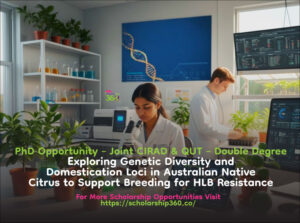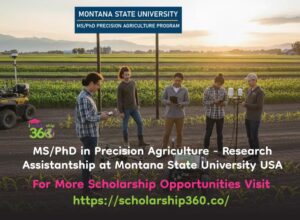CIFRE Thesis Offer 2025 from Invenio Solutions
Developing breeding strategies for better adaptation of remontant Strawberries plants influence of chilling requirements on yield dynamics
Research Theme Description
The cultivated strawberry (Fragaria x ananassa) is a perennial herbaceous plant propagated vegetatively, producing a fruit with high added value, appreciated by consumers for its organoleptic and nutritional qualities (minerals, vitamin C, antioxidants, etc.) (Giampieri et al., 2014). In France, the annual strawberry consumption reaches 120,000 tons, around 2.8 kg per household (source: Chamber of Agriculture France, 2024). However, more than half of the fruits consumed are still imported today, highlighting the strategic importance of more competitive national production.
In a context of climate change (+1.5°C by 2030) (IPCC report, 2023), strawberry production will be deeply affected in the coming years. It is urgent to anticipate these changes to adapt production systems and develop new varieties better suited to climatic fluctuations. Strawberries are cultivated in various geographic regions and farming systems (open field, under cover, soilless, heated or unheated greenhouses) and show high phenotypic plasticity (Prohaska et al., 2024), suggesting a significant adaptation potential.
The cultivated strawberry is the result of an interspecific cross between two wild American octoploid species (Song et al., 2024). There are two varietal types depending on the flowering mode: ‘non-remontant’ (or ‘seasonal’) genotypes with a single spring bloom, and ‘remontant’ genotypes with continuous flowering throughout the production season. The breeding challenges for strawberries are multiple and vary depending on the production niche and location. In France, producers today express strong demand for remontant varieties that allow extended production. An effective breeding program must meet several major challenges:
-
Select varieties that meet producer requirements: stable production, requiring fewer inputs, and satisfactory yield;
-
Select varieties that meet consumer requirements: especially fruit quality and taste;
-
Select varieties adapted to future climates and their uncertainties.
Invenio, an applied research and experimental station for fruits & vegetables in Nouvelle-Aquitaine, is the only strawberry varietal breeding center managed by French producers. For over 40 years, with Ciref and now Invenio, dozens of key varieties in French production have been developed there, such as Charlotte, Cirafine, Ciflorette, Manon des Fraises, or Chloé.
To meet these challenges and develop effective breeding tools to modernize and accelerate variety creation, it is necessary to understand the genetic architecture and molecular mechanisms involved in the regulation and plasticity of major agronomic traits of cultivated strawberries. In recent years, work jointly conducted by the INRAE BFP laboratory and Invenio Solutions has led to knowledge about the genetic determinism of traits of interest, such as remontant flowering (Perrotte et al., 2016), fruit quality (Prohaska et al., 2024; Denoyes et al., 2023), or resistance to powdery mildew (Prohaska, Rey-Serra, Bénéjam et al., in prep), via various approaches. However, key traits and their response to environmental fluctuations, particularly the complex trait of yield dynamics, remain insufficiently explored.
In remontant strawberries, yield dynamics—amount and pace of production throughout the season—is a crucial trait directly influenced by climatic conditions during the plant’s life. Climate changes may reduce the cold accumulation of plants during nursery cultivation, resulting in unmet chilling requirements and, consequently, an imbalance between vegetative and floral potential. These effects, expected to intensify, threaten the production of certain commercial varieties in the current cropping system. It is essential to identify genotypes early in the breeding process that will respond suitably to future cultivation conditions.
Modernizing the strawberry breeding program involves developing new tools such as Marker-Assisted Selection (MAS) and Genomic Selection, which accelerate the varietal creation process. Invenio Solutions, in collaboration with INRAE BFP, is already exploring these promising approaches and aims, through this CIFRE thesis, to integrate them more widely into its breeding program.
Thesis Objective
The objective of the thesis is to identify the genetic determinants of yield dynamics in remontant strawberries in relation to chilling requirements and to develop genomic tools (MAS, genomic selection) to effectively integrate this knowledge into an applied breeding program. The thesis will be conducted within the framework of a CIFRE contract between the private company Invenio Solutions (Dr. J. Perrotte) and the UMR 1332 “Fruit Biology and Pathology” (BFP) laboratory at INRAE Bordeaux (Dr. A. Gaston). The CIFRE dimension of the thesis gives it an operational objective: to provide tools to support strawberry breeding for the company.
This thesis project is structured around three scientific questions:
-
How can we define, identify, and characterize the genetic determinism of yield dynamics in cultivated strawberries based on different chilling requirements?
-
Can we model the plasticity of agronomic traits based on chilling needs and develop predictive approaches using genomic data?
-
What are the advantages and limitations of genomic selection in a breeding program for remontant strawberries?
Scientific Approach:
-
Action 1: Study the genetic architecture of response to cold hour conditions within Invenio’s genetic resource collection through an association genetics approach (GWAS) and identify statistical tools to model the plasticity of this response.
-
Action 2: Develop predictive approaches to anticipate the (agronomic and adaptive) behavior of new varieties using genomic data.
-
Action 3: Integrate genomic selection into a remontant strawberry breeding program: define tracking indicators and compare approaches with the phenotypic selection program currently used by Invenio breeders.
Methods Used:
-
Genotyping using Affymetrix® SNP arrays and sequencing data;
-
Phenotyping for yield dynamics and agronomic traits through in situ observations (in production greenhouses at Douville);
-
Exploratory statistical analyses of phenotypic data, GWAS, genomic prediction, simulation of crosses (at INRAE);
-
Modeling of reaction norms to characterize genotypic plasticity in response to the environment.
Valorization and Supervision
The research work will be disseminated via scientific publications and presentations at national/international conferences, as well as simplified presentations for producers and Invenio’s technical partners. These works will help establish new breeding strategies at Invenio.
The PhD student will participate in seminars and meetings of national networks (INRAE R2D2 network, ENVIE-Multistress network, technical working groups, Invenio’s varietal showcase…). The student will also benefit from the established European network of host structures and may visit foreign breeders.
The thesis will be supervised at the host laboratory by Amèlia Gaston (thesis director) and Juliette Bénéjam (co-supervisor), and at the company by Justine Perrotte (company supervisor). It will be carried out in a collaborative framework between INRAE BFP and the Strawberry Varietal Innovation team of Invenio Solutions. The research will be conducted about 50% of the time in Dordogne (Invenio) and 50% in Gironde (INRAE Villenave d’Ornon). Two thesis monitoring committees will be held during the PhD.
Recent Publications from Host Laboratory/Company
[List of six publications – already in English, provided in source]
Working Conditions
Starting: 01/12/2025, for a three-year duration.
Fixed-term contract for the thesis duration, legal working hours, salary conditions set by the ministry, possibility of on-site housing at Invenio (24), and access to collective catering at INRAE (33).
Candidate Profile
Required degree: Master 2
Skills: Strong knowledge in quantitative genetics, statistics, and breeding methods. Good foundation in bioinformatics and agronomy. Knowledge of physiology and strawberries is a plus. Proficiency in spoken and written English is required.
General requirements: Driver’s license B, ability to integrate into a team and work collaboratively in both a company and research lab; curiosity/interest in fieldwork, plant observation, and data analysis; organizational skills and synthesis abilities; understanding of technical and economic challenges in the field.
Host Company
Invenio Solutions
211 chemin des 3 chênes, 24140 Douville
https://www.invenio-fl.fr/solutions
Host Laboratory
UMR 1332 “Fruit Biology and Pathology”
INRAE Bordeaux, building A4, 71 avenue Edouard Bourlaux, 33140 Villenave d’Ornon
https://bfp.bordeaux-aquitaine.hub.inrae.fr
Application Instructions
To apply for this CIFRE thesis, send a CV, a cover letter, Master 2 transcript, and contact details of at least one referee to Justine Perrotte (j.perrotte@invenio-fl.fr) by June 27, 2025.
Interviews will take place in early July at UMR 1332 in Villenave d’Ornon (33).







